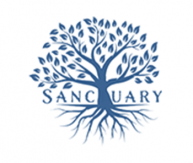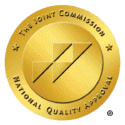
Is Benadryl Addiction Possible?
Benadryl is a familiar over-the-counter medication that has a wide range of benefits. However, when this drug is misused or abused, it can cause considerable harm, including the development of Benadryl addiction.
What is Benadryl?
Benadryl is the brand name of a medication called diphenhydramine. It is an antihistamine that is commonly used to treat symptoms that result from allergies, colds, and hay fever. People typically take Benadryl for relief from sneezing, itchiness, red or watery eyes, runny nose, rash, and related symptoms.
Benadryl may also be used to alleviate pain and/or itchiness that results from poison ivy, poison oak, minor cuts, and slight burns.
When used for cold, allergy, or hay fever symptoms, Benadryl is usually taken orally in liquid, capsule, or tablet form. It can also be administered via injection for people who are at risk for severe allergic responses such as anaphylaxis. When used to relieve pain or itchiness, it is usually applied topically as a gel, cream, or spray.
Potential side effects of Benadryl use include dry mouth, constipation, blurred vision, dizziness, impaired coordination, loss of appetite, and sedation. The sedative effects of Benadryl have made the drug somewhat popular as an off-label sleep medication.
Benadryl is available as an over-the-counter medication. In some states, its purchase is restricted to adults ages 18 and over.
Why Do People Abuse Benadryl?
In addition to prompting off-label use for sleep problems, Benadryl’s sedative and disorienting effects are also attractive to people who are seeking a certain type of recreational high.
In areas where this medication can be legally sold to adolescents, Benadryl abuse may be a particularly enticing form of substance abuse among younger people. Depending on where a person lives, it may be easier (and cheaper) for them to acquire Benadryl than it would be for them to purchase opioids or other illicit sedatives.
Experts have also identified social media as a factor in rising rates of Benadryl abuse among adolescents.
Of course, Benadryl abuse isn’t always the result of a conscious effort to achieve a form of intoxication. People who start using Benadryl to help them get to sleep may begin to use the medication more frequently or in larger amounts than they intended – which are classic signs of addiction.
Regardless of why a person begins to abuse Benadryl, they place themselves at risk for a variety of negative outcomes, including the development of Benadryl addiction.
Is Benadryl Addiction Possible?
As we noted in the previous section, yes, Benadryl addiction is possible.
Many people mistakenly believe that if a substance is described as a medication and is legally available either by prescription or via over-the-counter sales, it can be used safely with little to no risk.
It’s true that when you use most medications as directed, you are unlikely to incur significant harm. But virtually every medication causes side effects, some of which can be quite unpleasant. And anyone who abuses a medication risks considerable damage.
In the case of Benadryl, the potential damage that can result from abusing the medication includes developing Benadryl addiction.

Dangers of Benadryl Addiction
Untreated Benadryl addiction can be a source of considerable distress. Potential dangers include the following:
- Physical injuries due to impaired vision or coordination
- Conflicts within relationships
- Academic setbacks
- Problems at work
- Development or worsening of co-occurring mental health concerns
- Disrupted heartbeat
- Seizure
- Coma
- Death
Can Benadryl Addiction be Treated?
The good news about Benadryl addiction is that it is treatable. When you receive proper professional care from a reputable addiction treatment provider, you can end your Benadryl abuse and achieve long-term recovery.
How is it Treated?
Treatment for Benadryl addiction and co-occurring mental health disorders may occur on either an inpatient or outpatient basis.
- During inpatient addiction treatment, the individual lives at the facility. Features of inpatient treatment include full days of structured services, a safe and closely supervised environment, multiple forms of therapy, and nutritious meals. After completing inpatient treatment, many people step down to an outpatient program for continued support.
- During outpatient treatment for Benadryl addiction, participants only need to be at the center when treatment is in session. During non-treatment hours, they may work, attend school, volunteer, or return to their homes. Some outpatient programs include full days of treatment, five days per week. Others provide fewer hours of care, two to four days each week.
At both the inpatient and outpatient levels, various forms of therapy and support services can help people achieve recovery from Benadryl addiction. Depending on factors such a person’s age, the level of care they are in, and if they have any co-occurring mental health concerns, treatment may include elements such as the following:
- Individual therapy
- Family therapy
- Acceptance and commitment therapy (ACT)
- Cognitive-behavioral therapy (CBT)
- Dialectical behavior therapy (DBT)
- Trauma therapy
- Holistic therapy
- Neurofeedback
Begin Treatment for Benadryl Addiction in Los Angeles, CA
Benadryl addiction can be devastating. But it is a treatable condition. Sanctuary Treatment Center offers multiple levels of personalized care for adults whose lives have been disrupted by Benadryl abuse and addiction. Our treatment center in Los Angeles, California, is a safe and welcoming place where you can receive customized services and comprehensive support from a team of dedicated professionals.
When you’re ready to start living a healthier and more hopeful life, the Sanctuary Treatment Center team is here for you. To learn more about how we can help, or to make an appointment for a free assessment, please visit our Contact Us page or call us today.


